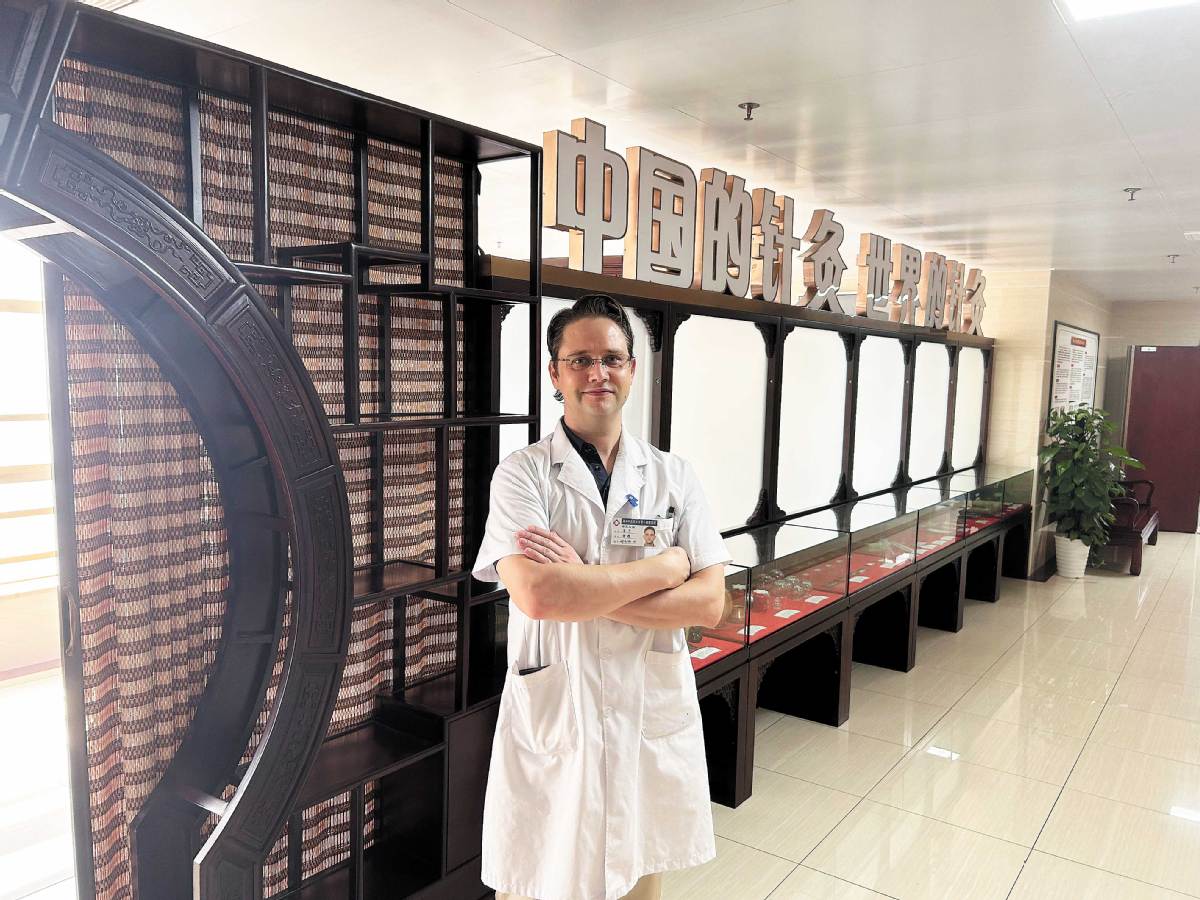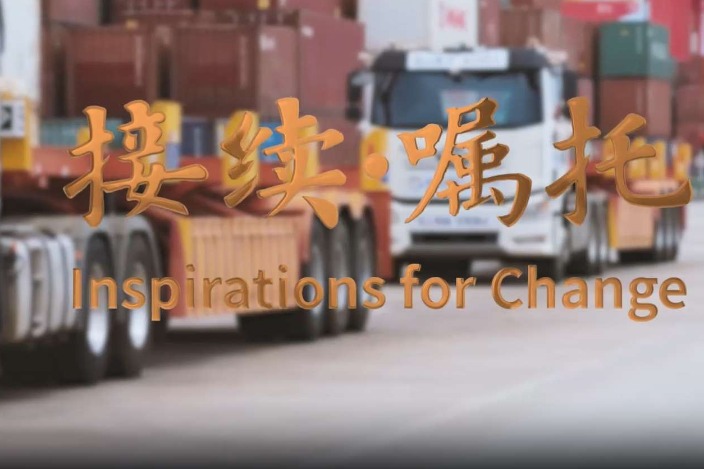Canadian provides TCM treatment for Chinese patients in Changsha
Traditional medicine improves health and increases cross-cultural understanding


Martin Haase, an enthusiast of traditional Chinese medicine from Canada, has been in China for 17 years. He has a Chinese wife and two daughters who are attending public school in Changsha, Hunan province.
His daughters' first language is Chinese and English is their second, he said. He has been fascinated by China and Chinese culture since high school, during which he started practicing Chinese martial arts and learning about Chinese philosophy such as Taoism.
Influenced by his grandmother's knowledge of herbalism, he became interested in natural healing.
Similarly, he said, traditional Chinese medicine is a healthy way of living that can strengthen your body and has a rich philosophy about being in harmony with nature and the seasons.
In 2004, he enrolled in a traditional Chinese medicine college in his hometown of Victoria, British Columbia. It took three years to complete his acupuncture course, after which the dean of the college recommended him to go to China under an exchange program to Hunan University of Chinese Medicine in Changsha, capital of Hunan, to gain more experience.
"I thought it was an amazing opportunity because before that it had always seemed like an impossible thing to do. It seemed too far away and too difficult. I realized that in life, all one has to do is to make a conscious decision and go for it! And it was the best decision I have ever made," he said.
He arrived at Hunan University of Chinese Medicine in 2007 and has been living in Changsha ever since.
"Despite the challenging weather, Changsha is my second home. I just feel comfortable here. I feel at home," he said.
He is currently pursuing a master's degree in acupuncture, moxibustion and tuina massage at the university. "Changsha is a terrific place to learn Chinese medicine. The resources in the hospital and at the university are fantastic and I'm very grateful to all my teachers here."
Haase said some of his patients don't fully understand Chinese medicine, even though they're Chinese, and the idea of a foreigner doing it seems funny to them.
However, once they start to experience how he works with them, diagnoses them, lets them know what the problem is and why, and then lets them know what he is going to do for treatment, they will better understand it and trust him. A lot of his patients have been recommended by other people, he said.
"I think it's really amazing as a foreigner to be able to give acupuncture to Chinese people in China. It is a little ironic, especially if it's their first time to ever receive acupuncture. I feel extremely appreciative and touched that I'm able to receive their trust and respect," he said.

























